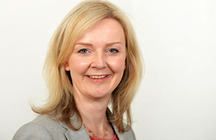Matt Hancock – 2017 Speech on UK and French Digital Strategy
Below is the text of the speech made by Matt Hancock, the Minister of State for Digital, in Paris on 7 November 2017.
Good morning, ladies and gentlemen.
I am grateful to the Embassy for organising this event.
The UK and France have a historic and close partnership and cybersecurity is no exception.
Whatever challenges we face in the future, with our strong partnership and talent in the UK and France, I know that we will always work to ensure the prosperity of our two countries.
We are neighbours. Neighbours here, neighbours today, neighbours tomorrow. Always neighbours.
Earlier this month we in the UK marked the first anniversary of our National Cyber Security Strategy. We have been busy, in securing Britain’s future online.
Like you, we have appointed our first ever Minister for Digital, and we have even renamed my department to make us the “Department for Digital, Culture, Media and Sport” to reflects the critical importance of all things digital to the UK.
Let’s recap on why this is so important.
In the UK, our tech industry created 3.5 million jobs in past year and 4 in 5 Brits bought something online in the past year – more than anywhere else in the world.
As jobs are increasingly changed, and as we face up to the fact there are jobs that technology destroys, so we must be at the forefront of the drive to create the new jobs that technology allows. We cannot stop the disruption, but we can help those disrupted, with a clear goal of redeployment, not unemployment.
And this great digital technology that is made by man, which brings great power and liberation and freedom must be hewn to benefit all mankind. The technology is made by man and it is within man’s gift to maximise its freedom while protecting the freedom of others.
While this mission is new, the principles that underpin it are old.
We can find some wisdom in the very founding documents of the French Republic.
On the internet, we seek nothing less than freedom, fraternity and equality.
Freedom, that we cherish the unprecedented and unimaginable freedoms the internet brings. This includes:
Fraternity, that we harness the internet to bring us together not tear people apart
Equality, that all of us online are treated fairly, that we benefit the same protections online as off, and that each and every one of us can benefit from the technology of tomorrow, equal to the dictum of Sir Tim Berners Lee, the founder of the world wide web, that ‘this is for everyone’
This need, this drive, to build an online world that cherishes these liberal values, the values of de Tocqueville, as well as Burke, is increasingly recognised around the world.
The internet is growing up, from a libertarian childhood, in which all connection was seen as a good thing, to a maturity where freedom must be tempered by the need to prevent harm.
As the great modern British philosopher Sir Roger Scruton has said: “In the libertarian free-for-all what is worst in human nature enjoys an equal chance with what is best, and discipline is repudiated as a meddlesome intrusion.” So what does this mean in practice?
In the UK, we have set out our approach as a Digital Charter, that will detail how the great freedoms online can be balanced with that discipline, each and everyone’s “important responsibilities”. To protect from harm, from abuse, to terrorist content, to protection of intellectual property.
And of course a safe internet is one where data is protected, and cyber security is strong. The UK has long identified cyber threats as a key challenge to our nation’s security. The National Cyber Security Strategy committed £1.9 billion for cyber, with the express goal making the UK the safest place to live and work online.
We have made significant progress towards these goals. We have created the National Cyber Security Centre, to bring together responsibilities, protect our critical services from cyber attacks, manage major incidents, and improve the security of the Internet in the UK. In that year alone, the NCSC dealt with 590 significant cyber attacks. More than one a day.
We are transforming the advice and guidance on offer to the public, based on ever-improving evidence and technical insight.
We have launched a range of initiatives to make sure the next generation have the cyber security skills to meet significant growing demand:
Our first apprenticeship scheme for critical sectors such as energy and transport was inundated with applications (nearly 1,250 people applied for the first 23 apprentice roles)
The CyberFirst Girls competition saw 8,000 talented 13-15 year olds take part
Our Cyber Schools Programme will train nearly 6,000 14-18 year olds over the coming years
We are also showing leadership in other areas, such as investigating security in the Internet of Things, to look at the best way to ensure internet-connected devices are safe, and have security built-in from the start.
And we can’t do these things alone. Critically, we need to work together with industry, and we have put huge effort into fostering and supporting a strong and vibrant cyber ecosystem.
The cybersecurity industry & ecosystem
We are active and restless in developing the whole ecosystem to support growth, innovation and security. I know here in France you are doing many similar things.
The UK and France both have thriving cyber ecosystems.
As one of the UK’s closest export markets and allies, France is a perfect partner for the UK in cyber, both in research and at a commercial level.
The UK’s cyber sector is booming. The workforce has grown significantly and cyber security exports were worth around £1.5 billion to the UK last year alone.
To stay ahead of the threat, it’s crucial we foster innovation in cyber security. That’s why we’re developing two Cyber Innovation Centres – in London and Cheltenham – to support the development of new technologies and the latest generation of cyber security companies. As part of that, we have established the GCHQ Cyber Accelerator – the first of its kind in the world – combining the world class expertise of the UK’s security and intelligence agency with start-ups to develop new capability, and leading edge academics.
But we mustn’t be complacent. It’s crucial we work with our international partners: working closely with them, sharing information, and facing challenges together – because our security is inextricably linked.
We are working to make the UK the best and most secure digital economy in the world. To that end, we will ensure our friends’ and our partners’ cyber safety whenever and however they do business with us.
And with that, I leave you with a salute, to the enduring values of freedom, fraternity and equality.
I hope you have a brilliant conference.
Long live the neighbours!


